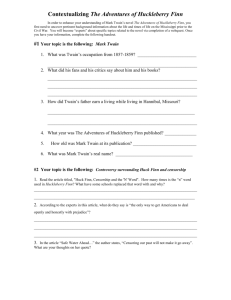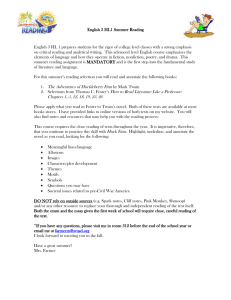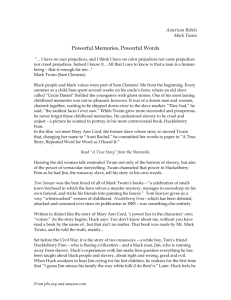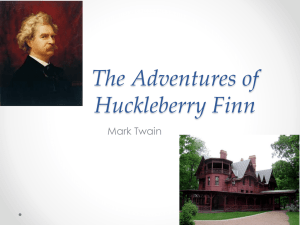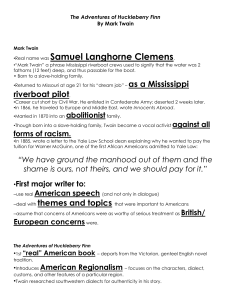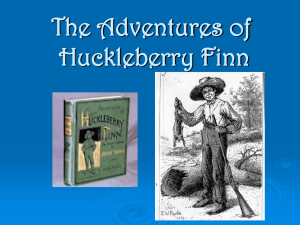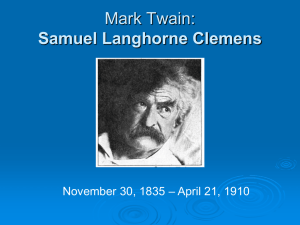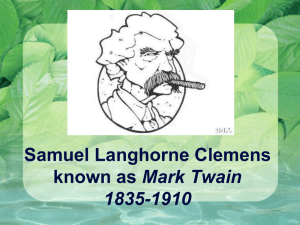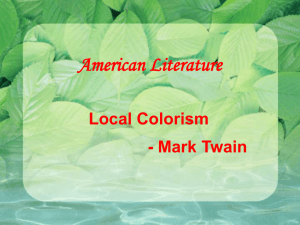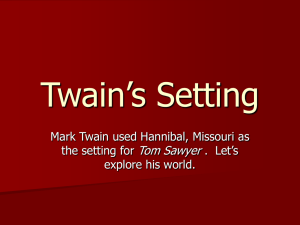Huck Finn intro lecture
advertisement
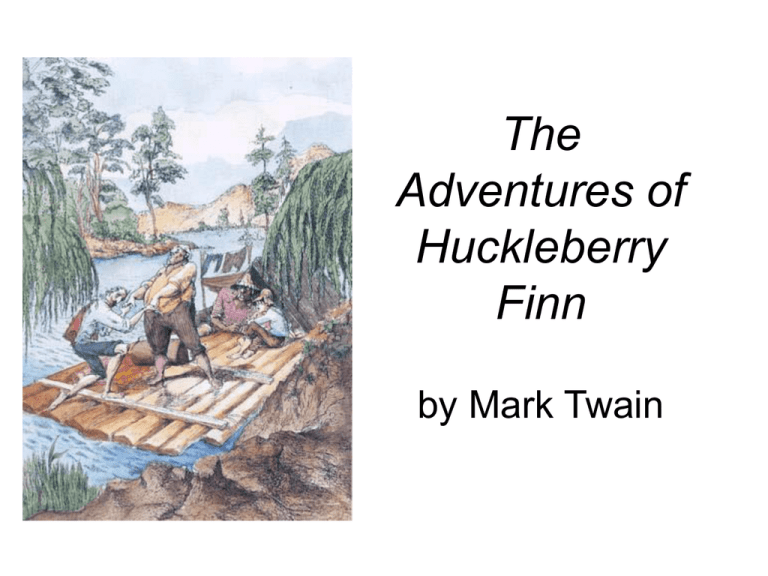
The Adventures of Huckleberry Finn by Mark Twain Mark Twain: a brief biography (taken from the Mark Twain House and museum website, http://marktwainhouse.org/) • born in 1835 in Missouri; real name was Samuel Langhorne Clemens • moved with his family at the age of four, to the small frontier town of Hannibal, Missouri on the banks of the Mississippi River (this would later be the basis for St. Petersburg in Huck Finn) • father died when Clemens was 11; he left school after finishing the 5th grade in order to become a printer’s apprentice • moved to New York City and Philadelphia at the age of 18; worked on several different newspapers (from www.bryan.k12.ga.us ) • in 1857 (when he was 21), moved back to MO to work as a riverboat pilot on the Mississippi • went to Nevada in 1861 to try his hand at silver prospecting—it didn’t work out • began writing for a Nevada newspaper where he used, for the first time, his pen name, Mark Twain. • moved to San Francisco in 1864 • published his first short story in 1865 • William Faulkner called Twain “the father of American Literature” • Ernest Hemingway has said that “All modern American literature comes from one book by Mark Twain called Huckleberry Finn..." Mark Twain in New Hampshire, 1905 from The New York Times Photo Archives Historical Context • When Clemens was born, Missouri was still a fairly new state (it had gained statehood in 1820) and comprised part of the country's western border—so back then, it was thought of as the frontier. • It was also a slave state. Clemens's father owned one slave and his uncle owned several. In fact, Clemens spent many boyhood summers on his uncle’s farm, playing in the slave quarters, listening to tall tales and the slave spirituals that he would enjoy throughout his life. Historical Context • The Missouri Compromise of 1820 – allowed Missouri into the Union as a slave state and, in order to keep the balance of free and slave states, allowed Maine in as a free state. – this was a highly controversial and divisive agreement • Disagreement about slavery would persist in the United States until 1861, when the first fighting of the Civil War broke out. • Huck Finn was written in 1884, but based in the mid-1800s before the Civil War. • We must always think of this novel in the context of slavery. Themes As we discuss the novel, keep the theme topics in mind—remember that your rough outline will be due this Friday (your entire theme isn’t due until September 18th, mind you--we’re just getting started early). 1) Satire 2) Huck’s moral crisis 3) Jim and Huck 4) The Mississippi River 5) Individual vs. society 6) Huck and Tom Satire • Satire: the use of scorn or ridicule for the purpose of exposing a folly. – In other words, an author will often make fun of someone or something in his work. While this ridicule is often funny on its own, it usually serves another, larger, purpose—to expose something that the author disagrees with or thinks is silly about society, the government, culture, etc… – Scary Movie as an example of satire: What might the makers of the movie be ridiculing? What’s their real point, then?

